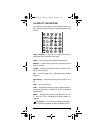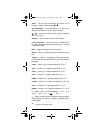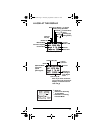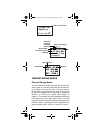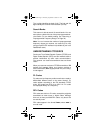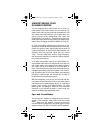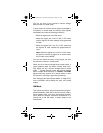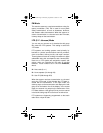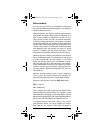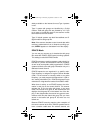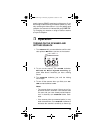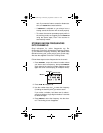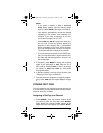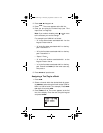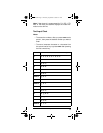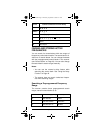
27
About Your Scanner
Motorola Mode
You can set your scanner so it decodes the talk group
IDs used with Motorola trunking systems. This setting is
called the
Motorola mode
.
Motorola systems are trunking systems used primarily
by business and public safety groups to efficiently allo-
cate a small number of frequencies (as few as 5) to
many groups of users (as many as several thousand).
To do this, each group of users in the system is assigned
to a specific talk group. For example, the east side patrol
officers might all be assigned to talk group 2160. One
channel in the system is continuously transmitting data
that identifies which talk groups are active on which
channel. In addition, this talk group information is also
transmitted as subaudible data on each active channel.
When the scanner receives a transmission on a channel
set to the Motorola mode, it first decodes the talk group
ID data included with the transmission. In the open
mode, the scanner stops on the transmission and dis-
plays the talk group ID on the bottom line of the display.
In the closed mode, the scanner only stops on the trans-
mission if the talk group ID matches a talk group ID that
you have stored in the bank’s talk group ID list and have
not locked out.
Motorola trunking systems come in three categories:
Type I
,
Type II
, and
Type I/II Hybrid
. Each category dis-
plays and uses talk group IDs in slightly different ways.
Motorola Type I IDs are in the form
FFF-SS
, where:
FFF
= Fleet ID
SS
= Subfleet ID
Type I systems are usually organized with different user
groups assigned to different fleets. For example, a valid
fleet/subfleet ID identifying all detectives within a police
department might be
000-12
, where
000
identifies all
police users and
12
identifies the Detective division.
To properly map the raw Type I data to the correct
fleet-subfleet format, you must program the correct
fleet map into the scanner. Fleet map information is
20-522b.fm Page 27 Thursday, September 7, 2000 9:41 AM



